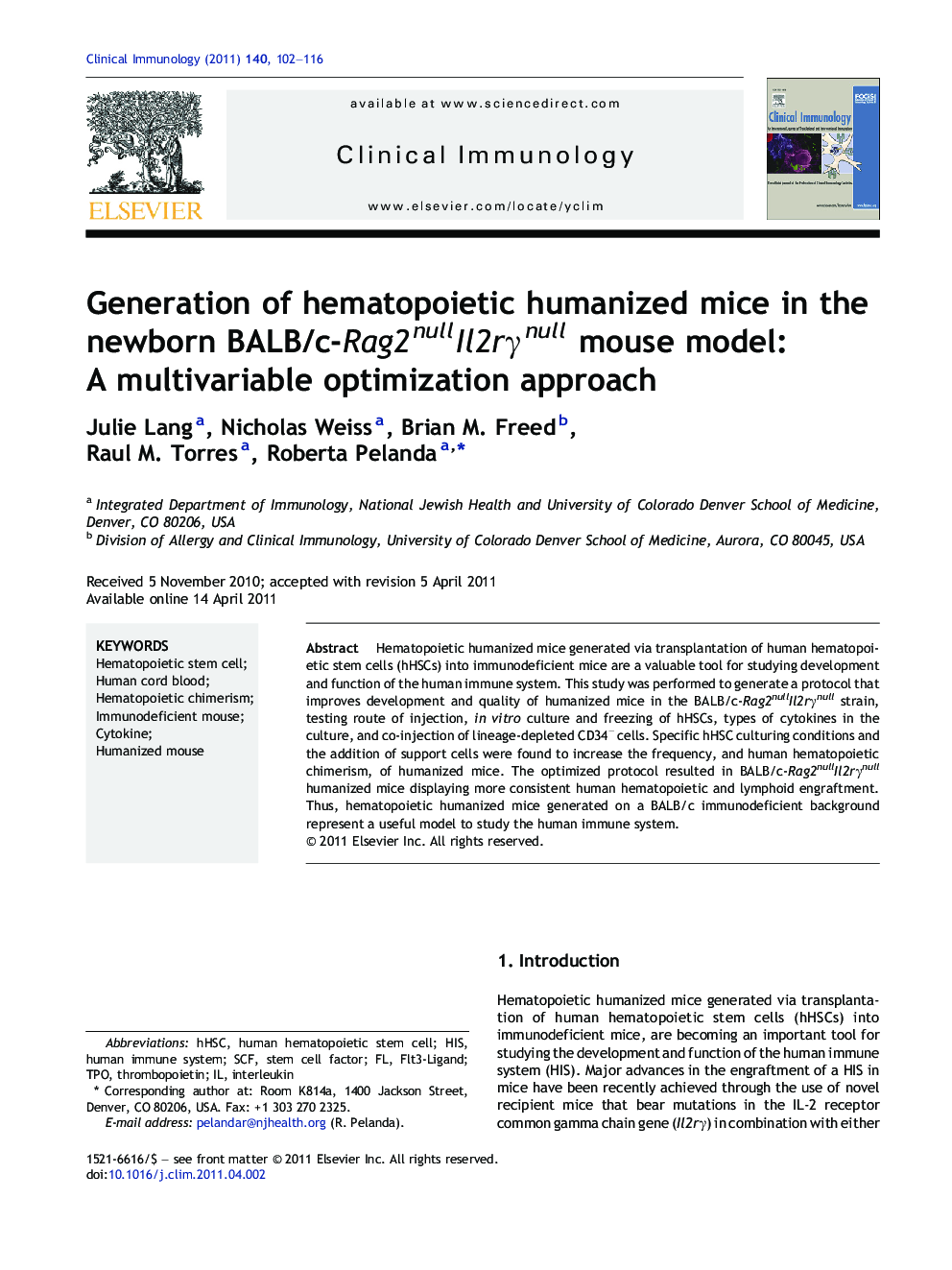| Article ID | Journal | Published Year | Pages | File Type |
|---|---|---|---|---|
| 3257280 | Clinical Immunology | 2011 | 15 Pages |
Hematopoietic humanized mice generated via transplantation of human hematopoietic stem cells (hHSCs) into immunodeficient mice are a valuable tool for studying development and function of the human immune system. This study was performed to generate a protocol that improves development and quality of humanized mice in the BALB/c-Rag2nullIl2rγnull strain, testing route of injection, in vitro culture and freezing of hHSCs, types of cytokines in the culture, and co-injection of lineage-depleted CD34− cells. Specific hHSC culturing conditions and the addition of support cells were found to increase the frequency, and human hematopoietic chimerism, of humanized mice. The optimized protocol resulted in BALB/c-Rag2nullIl2rγnull humanized mice displaying more consistent human hematopoietic and lymphoid engraftment. Thus, hematopoietic humanized mice generated on a BALB/c immunodeficient background represent a useful model to study the human immune system.
Graphical abstractFigure optionsDownload full-size imageDownload high-quality image (195 K)Download as PowerPoint slideResearch Highlights► Improving human hematopoietic chimerism in a BALB/c humanized mouse model. ► Test culture conditions of CD34+ and co-injection of CD34− cells. ► Test route of injection, and CD34+ cells from PBL. ► Found higher chimerism culturing CD34+ cells 1 to 8 days, co-injecting CD34− cells. ► Negative effects from culture with IL-3 and with CD34+ cell from PBL.
